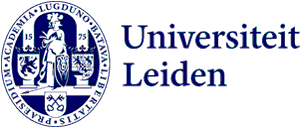
How are we following up on the Employee Experience Survey? ‘By investing in trust’
More than half of our staff took our Employee Experience Survey last spring. We shared the initial findings at the start of July, and since then we’ve taken a closer look at the results and how best to act on them. For Vice-President of the Executive Board Timo Kos, the next steps are clear.
What strikes Kos is how positively staff rate collaboration within their own team and the autonomy they have in their work. ‘But we’re not there yet. Alongside familiar challenges like high work pressure at work and concerns about dignity at work, trust in the organisation scored low in the survey. This came as a shock to the Board, which now sees strengthening trust in the organisation and in one another as a key priority.’
How do you aim to build trust, Timo?
‘We’re one university, but a large, diverse and multifaceted one. Trust is essential for effective collaboration, not just within your own team but also across institutes, faculties and services. And it’s vital for a safe and pleasant working environment. That’s why we’re investing in leadership development for managers and in personal leadership for individual staff members.
‘Building on trust also means being clear about what we aim to achieve and what we expect from one another, recognising and rewarding individual and team contributions, and communicating constructively when things don’t go as planned. These steps will foster dignity and respect and help reduce unnecessary pressure.
‘To support this, we’re developing four university-wide action lines: strategy, leadership, work pressure and communication. This will support the more targeted actions that faculties and services take based on the specific results for their own part of the organisation.’
‘Managers play a crucial role in shaping how staff experience the organisation.’
What about our university strategy?
‘Staff have indicated they want stronger alignment between strategic plans and their daily work. We’ll address this when we reassess our strategic plan, Innovating and Connecting, in 2026, once the Executive Board is complete in its new composition. Our goal is to translate our ambitions into clear choices and concrete objectives, and to communicate progress and results more transparently.’
Why continue investing in leadership development?
‘Managers play a crucial role in shaping how staff experience the organisation – they lead by example. How do they encourage open dialogue, translate strategy into concrete goals and team plans, involve their teams in change and create space for sensitive discussions? But it’s not just about managers. There is also a need for personal leadership development, focusing on topics such as dignity and respect, work pressure and effective communication.’
How can we tackle work pressure?
‘Despite recent efforts, work pressure remains high. Structural improvements take time, but clarity helps: agreeing, for example, on the level of quality we aspire to and whether this is realistic, and how much time we spend on research, teaching and other tasks, such as administration, preparation, meetings and follow-up. We’re also going to remove organisational barriers and are exploring innovative uses of technology, such as artificial intelligence, to support repetitive tasks.’
‘We’re creating a central hub for up-to-date information and communication on policy, decisions and regulations.’
What are we focusing on when it comes to communication?
‘Many staff find our policy and processes unclear. Information is often outdated, fragmented, hard to find or ambiguous – partly due to our organisational structure. We’re addressing this by creating a central hub for up-to-date information and communication on policy, decisions and regulations.
‘We also want to ensure this information reaches the right people at the right time. This is currently via managers, but we’re exploring options to develop a more intuitive and interactive intranet. This would give everyone access to relevant information and would encourage collaboration and interaction.’
And finally: what does this ask of us all?
‘It takes openness, genuine engagement, active listening and a willingness to work together. Trust grows when we invest in it together: whether you’re a manager, teacher, researcher or support professional. Only then can we improve step by step, by focusing on what’s going well and what can improve, and doing so at a realistic pace.
‘The world around us is fraught with conflict, polarisation, a shifting political climate and austerity measures. That can feel discouraging, but it makes it all the more important to continue to build a university where people enjoy working, have opportunities to grow and feel safe and connected.’
